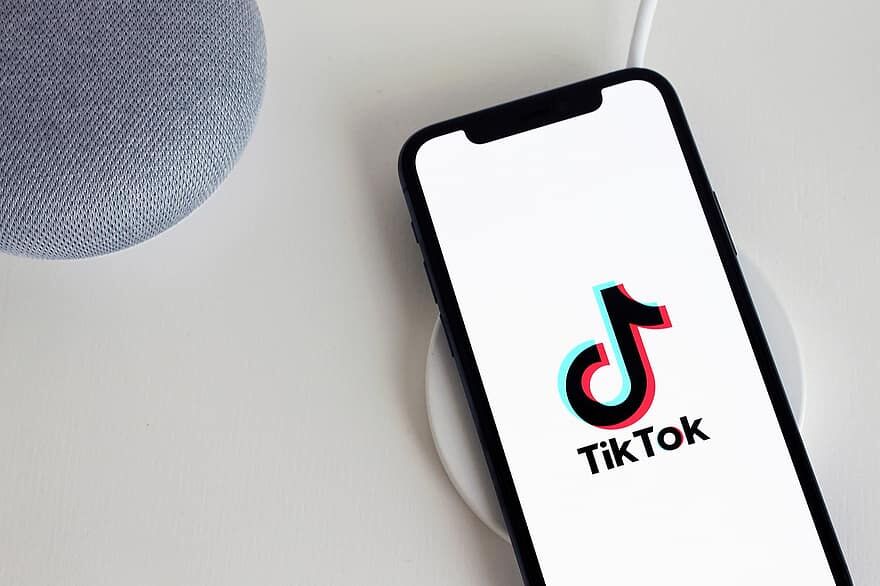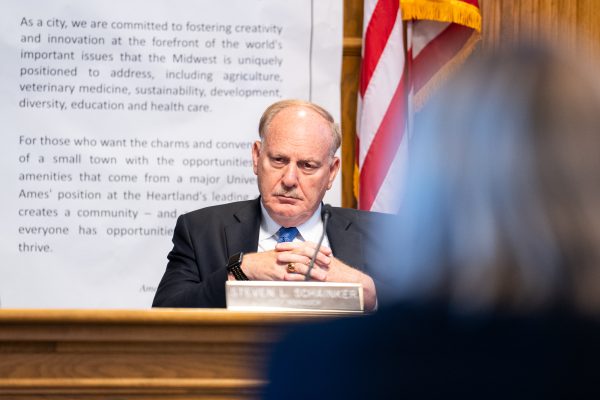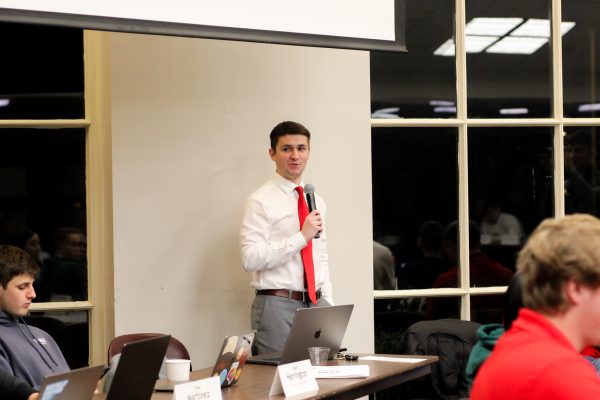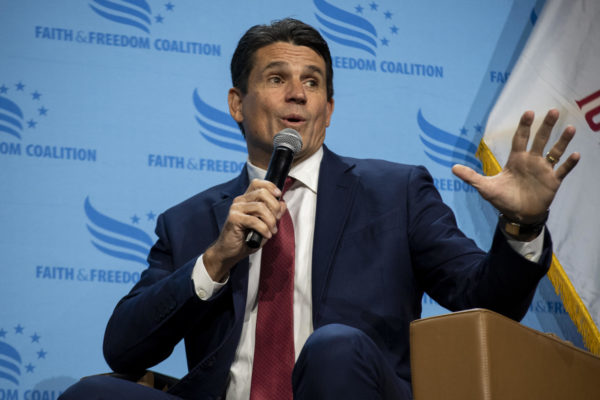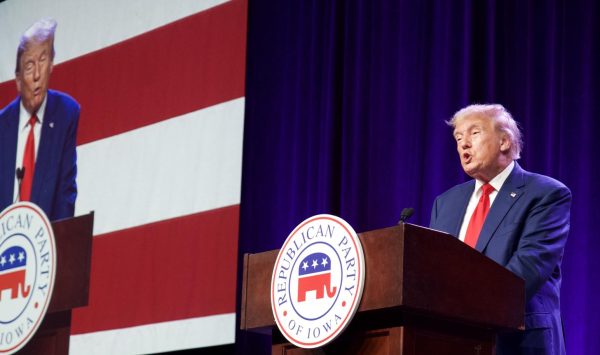What the potential TikTok ban could mean for students
While support for banning TikTok has grown among Democrats and Republicans, students question the constitutionality of the government’s power to enforce such a ban.
The Restricting the Emergence of Security Threats that Risk Information and Communications Technology Act (RESTRICT Act), also known as the TikTok Ban, is a bill that requires federal actions to identify and mitigate foreign threats to information and communications technology (ICT) products and services and aims to establish civil and criminal penalties for violations under the bill.
Mack Shelley, a university professor in the political science department, shed light on why he believes TikTok is at the center of the conversation regarding the RESTRICT Act.
“The reason why TikTok is being targeted, of course, is because it’s connected to China; and when Congress, that means Democrats and Republicans, love to beat up on China right now, this is a convenient way to do that,” Shelley said.
Shelly said that if the major concern of Congress is the state of national security, other apps and private corporations pose more of a threat.
The bill would empower the government with the right to review and take action against– including banning or monitoring– any software or hardware that is believed to be a national security risk. This includes wireless local area networks, mobile networks, internet hosting services, cloud-based data, desktop applications, and mobile applications. The bill also criminalizes the usage of virtual private networks (VPNs) to bypass these banned apps.
On Dec. 13, Gov. Kim Reynolds issued a ban on the use of TikTok on all state-owned devices. As a result, Board of Regents President Mike Richards issued the same ban on all devices owned, leased or otherwise controlled by regent institutions.
TikTok, as a mobile application, is included in this list, and due to its affiliation with its parent company Bytedance, which is located in China—one of the nations listed within the bill as a “foreign adversary”—the app has been singled out as a possible threat to national security. U.S. Lawmakers worry that Bytedance may be turning over user data to the Chinese government or that they will in the near future.
“We have had really huge data security breaches before that didn’t involve TikTok at all—not just social media, but government official archival records,” Shelley said. “It isn’t just TikTok that can do this sort of thing. Facebook probably has more data about everyone on the planet than anyone else, so wouldn’t you be worried about Facebook as much as you are worried about TikTok?”
Student opinion
For students like Cody Swank, the President of the ISU College Democrats, a junior in human resource management, and a regular user of TikTok, the prospect of a ban on TikTok seems unconstitutional. “The fact that this is a topic of discussion scares me for the sake of our democracy.”
According to the Pew Research Center, 48% of TikTok users are between the ages of 18 and 29.
“Politicians are scared how quickly information can spread through this app and are concerned with our generation becoming ‘too woke,’” Swank said. “This is part of the fascist agenda to keep Americans uneducated and oblivious.”
Armaan Gupta, a junior in management information systems and the former president of Turning Point USA, also shares concerns about what a proposal like the RESTRICT Act means about the government’s future role in our internet access.
“It would give the government unrestricted access to our data, digital footprints, and online whereabouts without need for probable cause,” Gupta said.
Gupta said some congress members have concerns about the impact TikTok may have on children.
“TikTok should be banned because of the influence the Chinese government can have on our youth and because the application is designed to be addicting,” Gupta said. “I think it would have a positive effect on students.”
Your donation will support the student journalists of the Iowa State Daily. Your contribution will allow us to purchase equipment, send our student journalists to conferences and off-set their cost of living so they can continue to do best-in-the-nation work at the Iowa State Daily.


